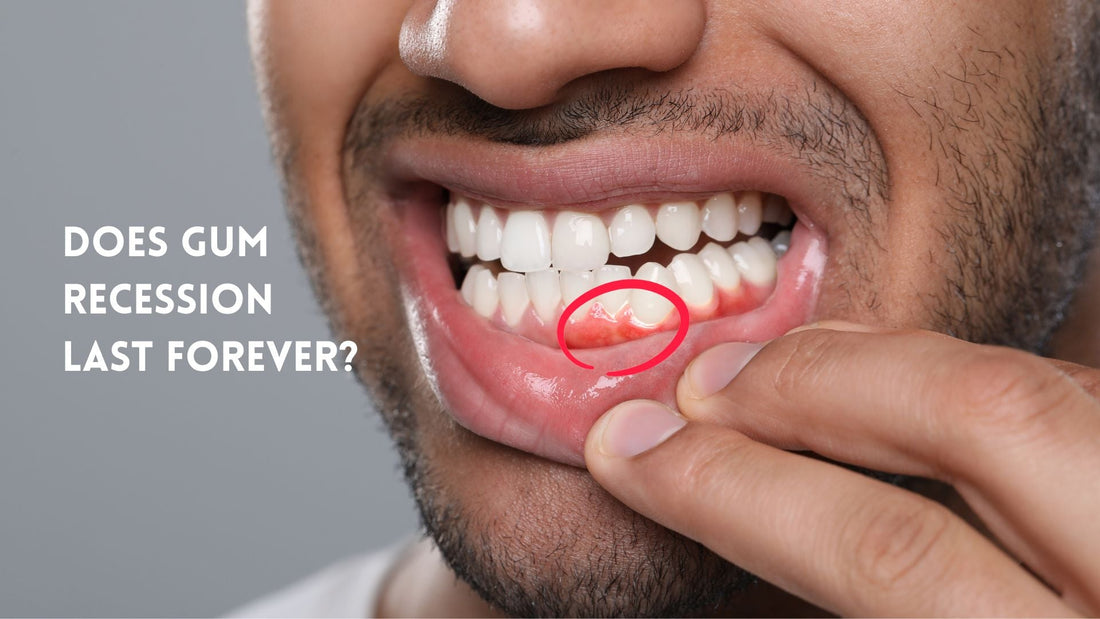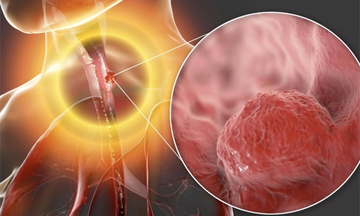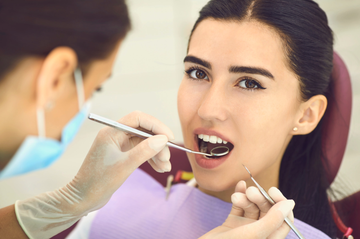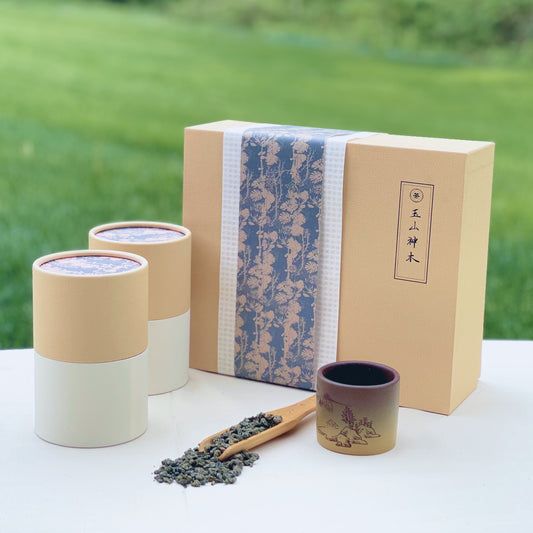Gum Recession: Can You Regrow Your Gums? What Chinese Medicine and Science Show.

Ask any traditional dentist this, and you’ll hear the same thing: a big fat NO. But did you know Traditional Chinese Medicine (TCM), and even new insights in modern science say otherwise?
For the last 80 years, traditional dentistry has believed that gum recession is irreversible. But there’s more that contributes to gum health and recession than they might realize. This week, we’re diving into how Chinese medicine and pioneering research has shed new light on the age-old question: Can our gums regenerate?
So How Does TCM View Gum Health?
In Traditional Chinese medicine (TCM), we see gum health as a reflection of the body’s internal balance. In contrast to western dentistry, which focuses on mechanical and bacterial causes of gum disease, TCM examines how organ health, Qi (vital energy), blood circulation, and internal heat influence the gums. Understanding these connections can provide new insights into preventing and managing gum recession naturally.
1. The Role of the Kidneys in Gum Strength
TCM identifies the kidneys as the root of bone health, including in the teeth and gums. The concept of Jing (essence)—the vital energy stored in the kidneys—directly impacts the strength of the gums. When kidney Qi is weak, gum tissue can deteriorate, leading to receding gums and loose teeth. Now only recently has science discovered this too. Studies have linked chronic kidney disease with periodontal disease, reinforcing the TCM idea that kidney function affects oral health. Research published in the Journal of Clinical Periodontology found that individuals with kidney disease are more prone to severe gum issues.

TCM approaches this with herbal remedies like Liu Wei Di Huang Wan to help nourish kidney essence. Foods such as black sesame seeds, walnuts, and bone broth support kidney function. Red Ginseng is used in TCM to boost Qi and overall vitality, which can strengthen the kidneys and, in turn, support gum health. Comment down below if you want us to dive into these remedies!
2. The Connection Between Stomach Heat and Gum Inflammation
Gum bleeding, swelling, and sensitivity often indicate excessive stomach heat in TCM. Since digestion starts in the mouth, an imbalance in the stomach can cause inflammation that manifests as red, swollen, or receding gums. What’s interesting is, research shows that diets high in processed foods, sugar, and acidic beverages increase the risk of periodontal disease by altering oral pH and promoting bacterial growth. This aligns with the TCM belief that dietary heat contributes to gum problems.

To treat this, TCM uses several ways, starting with cooling herbs like Huang Lian and Chrysanthemum tea to help reduce inflammation. There’s also acupuncture, which pinpoints Stomach 36 (Zusanli) and Large Intestine 4 (Hegu) that regulates digestion and heat balance. As an added treatment, Mastic Gum, a natural resin known for its antimicrobial and anti-inflammatory properties, is used in TCM to support digestive health and protect the gums from bacteria and inflammation.
3. Blood Deficiency and Weak Gums
In TCM, blood (Xue) nourishes all tissues, including the gums. If blood is deficient, gums may appear pale, thin, and prone to recession. Blood deficiency often stems from poor diet, chronic stress, or overexertion. This agrees with Anemia and iron deficiencies, which are known to contribute to poor gum health. A study in The Journal of Periodontology found that people with low hemoglobin levels experience higher rates of gum disease and tissue deterioration.

If you went to a TCM doctor, they’d likely give you blood-nourishing herbs like Dang Gui (Angelica Sinensis) and Goji berries (Gou Qi Zi) to improve gum strength. You’d also be given a list of Iron-rich foods such as leafy greens, red dates, and black beans help build blood. Acupuncture at Spleen 6 (Sanyinjiao) boosts blood production and circulation. At our practice, we recommend Myrrh, a well-known TCM herb used to promote blood circulation and gum healing. It’s often incorporated into herbal mouth rinses for its antiseptic and tissue-regenerating properties.
TIP: We would suggest Natto (Fermented Soybeans) is rich in Vitamin K2, which supports bone density and circulation, essential for maintaining strong gums and preventing further recession.

So Can You Regrow Gums Using TCM?
While TCM cannot immediately regenerate lost gum tissue like a gum graft, TCM sources show that certain herbal and acupuncture-based therapies can stimulate the body's natural ability to repair gum tissue. In TCM, the key to regrowth lies in improving blood circulation, boosting Qi, and nourishing kidney essence (Jing) to strengthen gum tissue over time.
Even Acupuncture on key meridians, such as Stomach 6 (Jiache) and Large Intestine 11 (Quchi), has been used in TCM to stimulate healing and gum tissue repair. A study published in BMC Complementary Medicine and Therapies highlighted the anti-inflammatory effects of Chinese herbal medicine on periodontitis, showing that it can enhance gum healing and reduce bacterial buildup.
Stay tuned for next week’s newsletter, where we’ll dive into how you can incorporate TCM practices into your oral health routine, from simple to complex. With the right approach, your gums can remain healthy and strong for years to come!
暫無評論








0條評論